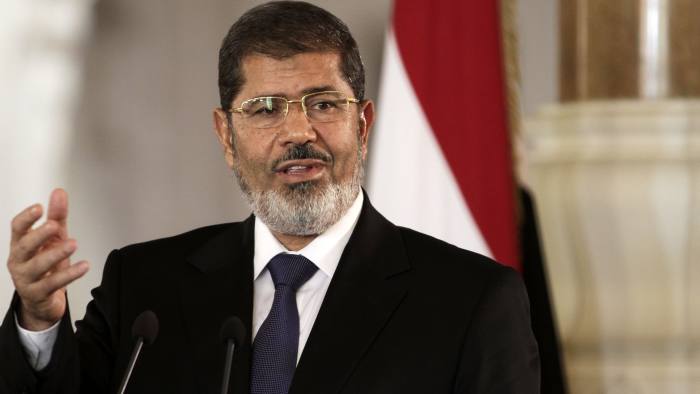Egypt: UN experts denounce Morsi “brutal” prison conditions, warn thousands of other inmates at severe risk
UNITED NATIONS PRESS RELEASE
GENEVA (8 November 2019) – The prison regime in Egypt may have directly led to the death of former President Mohamed Morsi, and may be placing the health and lives of thousands more prisoners at severe risk, UN independent experts* have said.
“Dr. Morsi was held in conditions that can only be described as brutal, particularly during his five-year detention in the Tora prison complex,” the experts said. “Dr. Morsi’s death after enduring those conditions could amount to a State-sanctioned arbitrary killing.
“We have received credible evidence from various sources that thousands more detainees across Egypt may be suffering gross violations of their human rights, many of whom may be at high risk of death. This appears to be a consistent, intentional practice by the current Government of President Adel-Fattah Al-Sisi to silence dissenters.
“Egypt should promptly address its prison conditions and reverse what appears to be deeply entrenched practices that are severely infringing on people’s right to life, the right not to be subjected to arbitrary detention, the right not to be subjected to torture or ill-treatment, the right to due process and a fair trial, and adequate medical care.”
In an official communication to the Government, the experts have set out the catalogue of daily hardships imposed upon and lack of care suffered by Dr. Morsi.
“Dr. Morsi was held in solitary confinement for 23 hours a day,” the experts said. “He was not allowed to see other prisoners, even during the one hour a day when he was permitted to exercise. He was forced to sleep on a concrete floor with only one or two blankets for protection. He was not allowed access to books, journals, writing materials or a radio.
“Dr. Morsi was denied life-saving and ongoing care for his diabetes and high blood pressure. He progressively lost the vision in his left eye, had recurrent diabetic comas and fainted repeatedly. From this, he suffered significant tooth decay and gum infections.
“The authorities were warned repeatedly that Dr. Morsi’s prison conditions would gradually undermine his health to the point of killing him. There is no evidence they acted to address these concerns, even though the consequences were foreseeable.”
The thousands of other detainees enduring similar conditions include Dr. Morsi’s former foreign affairs adviser, Dr. Essam El-Haddad, and his son Mr. Gehad El-Haddad, who was chief spokesman for the Muslim Brotherhood at the time of his arrest, the experts said.
“These two men are effectively being killed by the conditions under which they are held and the denial of medical treatment. It appears that this is intentional or at the very least allowed to happen through the reckless disregard for their life and fate,” the experts said.
“Thousands of other prisoners in Egypt may also be at risk of death or irreparable damage to their health because of inadequate conditions of detention, compounded by rampant violations of due process, including detention without charge, incommunicado detention, inadequate access to lawyers, and other practices preventing a fair trial.
“We have received reports of overcrowding, inadequate food, poor ventilation and no access to sunlight. Prisoners are denied family visits and fail to receive necessary medical care. Many are placed in solitary confinement for extended periods of time.”
The experts called for an effective independent and impartial investigation into the unlawful death of Dr. Morsi and of all other prisoners who had died in custody since 2012, for the prosecution of the alleged perpetrators, and compensation for the victims’ families. The methodology and results of the investigation should be made public.
The experts have engaged with the Government and will continue to monitor the situation. They have offered their assistance to work with authorities and other relevant stakeholders to address the dire prison conditions.





Recent Comments